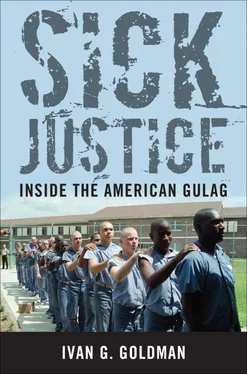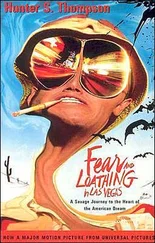On Sept. 30, 2010, when the appellate court denied her appeal, it stated, “We find that [her] sentence does not shock the Court’s conscience.” 34The criminal justice system doesn’t outrage easily. The statute that put Devereux away for life remains on the books.
TWENTY DOLLARS, TWENTY-FIVE YEARS
In 1994 a California judge handed J. K. “Skip” Singh twenty-five years to life for a single rock of methamphetamine that fell out of his boot when he was booked at the jail in Bakersfield. 35The arresting officer said he pulled Singh over because the light on his license plate was illegally tinted and then arrested him for driving under the influence (DUI) of a drug that turned out to be heroin. But it was the rock that would put him away for good.
No choir boy, Singh was a cast-off child who’d grown up in foster homes. At the time of his arrest in 1994 he was a heroin addict who’d already served sentences for robbery and attempted robbery. He’d also once failed to appear in court. His DUI arrest was on March 4, three days after the state’s three-strikes law went into effect.
Heroin and meth habits are mutually exclusive; mixing the two substances in the bloodstream can easily result in death. Singh said that somebody had given him the rock of crystal meth weighing 0.22 gram, or less than 10 percent of a sugar packet, and that he “was planning to give it away.” It was worth about twenty dollars on the street.
Singh, a cancer survivor, was in his mid-fifties when we talked in 2011. He pledged to walk a straight line should he ever make it out of prison. This type of talk is not surprising. But when I checked I learned that he actually had a job waiting for him at his brother-in-law’s welding business in Missouri. By the time we spoke, he’d already served seventeen years for that twenty-dollar rock. His wife, Linda, still hopeful, visited him regularly. Even hard-core criminals, when they reach middle age, are much less likely to commit crimes, and Singh was unusually forthcoming about his previous offenses, which lent him some degree of credibility. According to younger convicts who served with him, he tenaciously lectured them to straighten out while there was still time. He’d become a father figure to a youthful prison population that was mostly fatherless.
Whatever he was planning to do with that rock those many years ago, the question now was, was it just to put him away for life for that sliver of dope? It’s safe to say that no other Western democracy would inflict such a major penalty for a minor incident that involved no victim. But the intractable war on drugs provides a handy tool to put people like Singh away for good when the system tires of them. Twenty-five-to-life inmates rarely make it out of the California prison system. His first parole hearing was set for 2019. Had he beaten the odds and made it out then, he’d have served six years more than Hugo’s Jean Valjean.
Singh did not make it to that hearing. Linda called in early 2012 to tell me he died in custody on the last day of 2011. “He developed an aortic dissection,” she explained, a very dangerous condition in which there’s bleeding into and along the wall of the major artery carrying blood out of the heart. The condition can be repaired with surgery, but Singh was prescribed medication instead. When his medication ran out, he told Linda, he was unable to renew his prescription. “He said he pleaded with the nurse,” Linda told me, “but she just said, ‘Next.’” Linda made many useless phone calls. People hung up on her, she waited and waited on hold, she was disconnected in transfer, she was sent on round-robins that took her back to the same extension—all the usual telephonic flip-offs that are geometrically expanded when penal authorities are involved.
Finally, after he suffered a series of small strokes, Singh was taken by ambulance from prison in Corcoran to the public hospital in Fresno. “When prisoners come into that hospital their families get one hour with them, one time. That’s the rule,” Linda said. “I drove up there and sat with him for the hour.” He died before doctors could operate. The system didn’t exactly kill him, but it didn’t move mountains to save him either. It was a death rendered even more anxious and cheerless by his convict status.
BLACK GIRLFRIEND
Sergio Ayala was stopped in Pasadena for driving over a painted divider, the arresting officer said in his report. 36That, recalls Mike Rothmiller, was one of the excuses an instructor at the Police Academy recommended to cadets who might need to fabricate probable cause after they hit the street. “Don’t say it was an equipment violation because then you would need physical evidence, such as a broken tail light,” the instructor explained. Instead, tell lies that can’t be proved. Arresting officers doctor most of their reports in one way or another, Rothmiller maintains. Cops “weave a spell” over them “to make them fit their perceptions.”
“Do you know why I stopped you?” the officer asked Ayala. No, he said. According to Ayala, the officer replied, “Well, when I see a black and a Hispanic together I know they’re up to no good.”
“I remember those words of his though seventeen years have passed,” said Ayala, whose passenger, his girlfriend, was black. He was convicted of transporting nine grams of crack under a complicated formula that allowed the prosecution to count seven hundred dollars in cash as though it were part of the drug stash. He’s now doing the familiar twenty-five years to life in Salinas Valley State Prison in Soledad, California, and remains tortured by his decision to turn down the six-year plea deal because he knew that under the law, the officer who pulled him over had no right to search him. As years pass it becomes harder and harder to appeal his case. Ayala, born in Mexico, was still struggling with English when he went inside. Other inmates helped him sift through statutes and court records related to his case. But witnesses disappear, cops retire to Idaho, evidence is lost, and what happened so long ago begins to feel trivial somehow, even less worthy of serious scrutiny than it was originally. Ayala’s case is like some old cardboard box sitting on a shelf in someone’s garage. There may be something inside, but no one is bothering to find out.
WRONGFUL SPEECH
Because the drug war is heavily spiced with elements of the irrational, its advocates tend to be more zealous in its defense, even to the point of monitoring its foot soldiers. Ask border patrol agent Bryan Gonzalez, who was fired for wrongful speech. 37On a slow day in April 2009, as he worked near Deming, New Mexico, Gonzalez and fellow agent Shawn Montoya pulled their vehicles next to each other, rolled down their windows, and shot the breeze. During the course of the conversation, Gonzalez remarked that present policy wasn’t working and that legalizing drugs would be the most effective way to curtail violence along the border. He mentioned LEAP and also expressed sympathy for migrants whom agents routinely intercepted crossing from Mexico to seek work. Montoya disagreed, but the conversation remained friendly and, Gonzalez thought, unremarkable. Later, however, Montoya related the discussion to another agent who reported it to Washington. Soon Gonzalez was the subject of an internal affairs investigation.
Gonzalez didn’t even know he was being investigated when, obeying what he thought was a routine request from his supervisor, he reported to the El Paso office. In El Paso his interrogators asked questions such as, Do you have plans to overthrow the government? and Are you a socialist? Agents reminded the shocked Gonzalez that he hadn’t quite finished his two-year probationary period. They collected his badge and gun that very day. In the termination letter that soon followed, the agency decreed that Gonzalez held “personal views that were contrary to the core characteristics of Border Patrol agents, which are patriotism, dedication, and esprit de corps.” 38Gonzalez later complained that he was fired for using the rights afforded citizens by “the very Constitution I swore to uphold.” 39Aided by both LEAP and the ACLU, he sued for wrongful termination and compensatory and punitive damages.
Читать дальше












